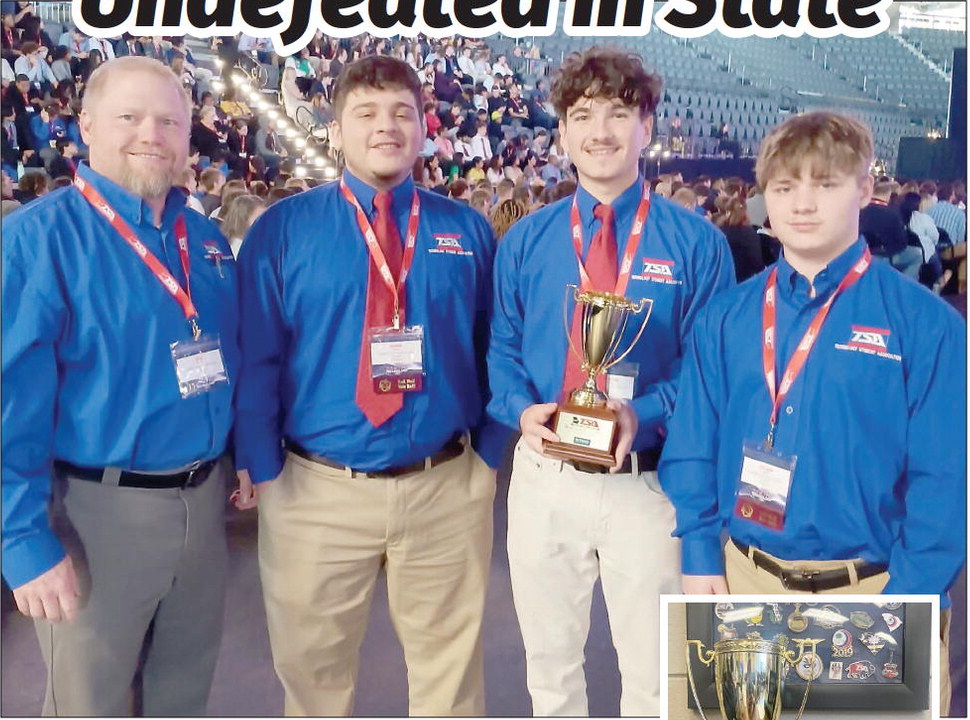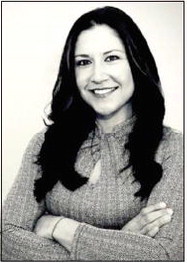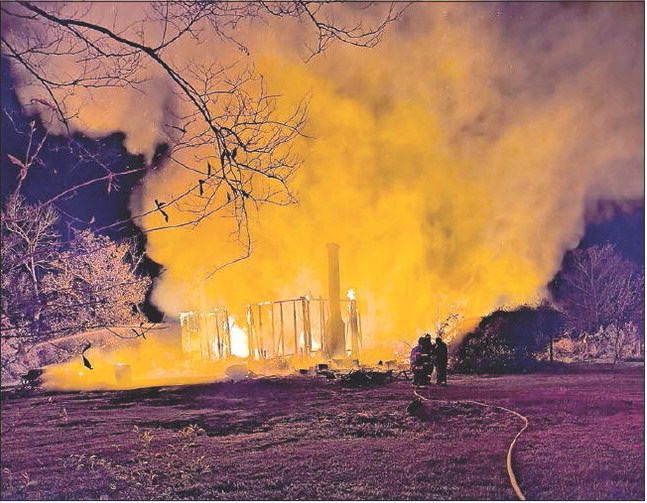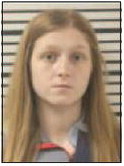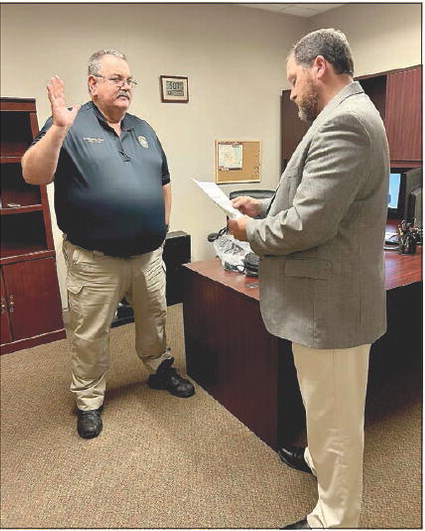Local Patriot Recounts Events Of January 6 at Nation’s Capital
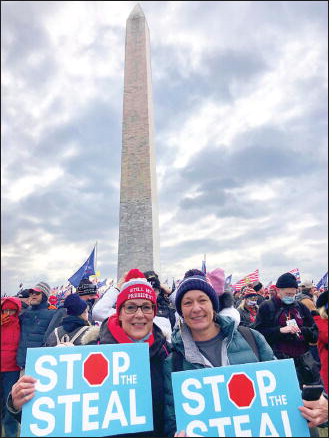

Vidalia businesswoman Heather Davis defines herself as a patriot. That is why she decided to join others like herself in Washington, D.C., on January 6 in what she believed was an effort intended to reinforce American ideals and to be an acclamation of the policies and achievements of President Trump. What unfolded before her eyes was an experience she will never forget.
Davis shared that she has been a registered Republican for most of her life but has not always identified with any political party. She said she votes for the actions and principles of the candidate and not necessarily the party. “I voted for Trump because he was independent of our two-party system. I have never called myself a Trump supporter until recently. When you look back at his campaign and presidency, he has kept his promises to the American people.”
She said of Trump, “He has been ridiculed, belittled and disrespected by the media, Democrats and Republicans alike for the entirety of his presidency. But he remained strong and persisted with his agenda and consistently kept his promises to the American people. Why would I not support this man?”
Once she made the decision to journey continued from page
to Washington, D.C., Davis reached out to friends she had made in Maryland during her residency there several years ago. She enthused, “When I lived in Maryland, I used to travel to D.C. on the weekends. I am such a patriot! I love D.C.!” Some of Davis’s friends got back in touch and informed her that they were going to the rally in Washington and would join her there.
She boarded the plane at Jacksonville International Airport on January 5 with a group of enthusiastic Trump supporters who were bound for Washington, as well. She remembered that every time the captain remarked about D.C.—the arrival time or some other reference—the whole plane cheered. When the flight attendant gave a weather update and mentioned the capital city, everyone clapped.
Davis debarked at Reagan National Airport and went straight to an apartment she had rented two miles from the White House. Once she had settled in, she walked toward the White House Ellipse where the President was to speak the following day. “It was very discouraging to see that Washington was basically shut down. Most businesses were boarded up but every now and then we would see a small business with an ‘Open’ sign displayed. When I was in D.C., prior to this trip, everything was bustling.”
As she walked to the National Mall where the rally would be staged, Davis observed that a nineblock area near the White House and the Capitol was blocked off with police vans and snowplows parked strategically— either to block traffic or to impede crowds. The environment was not welcoming. There were no temporary sanitation stations and very few trash receptacles were positioned within the nine-block area. Washington police were already lining the streets.
January 6 dawned cold and wet, but despite the weather Davis and her friend were still excited to be a part of what they regarded as history in the making. They walked several blocks to the Ellipse, arriving around 10:30 a.m. The President was scheduled to speak at 11 a.m. but was late. Davis recalled, “The streets were full of patriots, people of different races and ethnicities from all over the country. There were Latinos, African-Americans, and Chinese-Americans handing out literature on how to fight the Chinese Communist Party. There were people from Hawaii and Alaska, Ohio, and tons of veterans; all were just hardworking, blue-collar Americans there to support their President, the Constitution and the foundations on which our country stands. It was amazing to see how many people came from so far away to be a part of this.”
Davis emphasized the people present were peaceful and not there to cause trouble. “They were there to unite and show that we matter. Our voice and our vote matter.”
Davis said reports by the media estimating the crowd at a couple of thousand were way off. “There were hundreds of thousands of patriots, elbow-to-elbow, in that nine-block area.”
As Davis and her friend listened to the President, a few people started leaving early to head to the Capitol. She observed that some of these people “looked different.” They were wearing what she assumed to be bulletproof vests. “They were very militant looking. They were wearing black clothes with helmets and some had face paint.”
Toward the end of the President’s speech Davis and her friend decided to get a head start on the walk toward the Capitol. She said word had circulated throughout the crowd earlier that day that following the President’s speech, the crowd would move to the Capitol. “It had already been determined within the crowd that everyone would go to the Capitol even before the President spoke,” Davis said.
The five or six block trek toward the Capitol in which Davis took part was a peaceful progression. “People were walking and chatting. It was so friendly. Everyone was happy to be there. Most of these people had probably never been to the nation’s capital and visited federal buildings. They were excited just being there,” Davis said. As they neared the Capitol, Davis took note of the police cars lined up along the streets, “I heard one of the female officers say, “The captain says we need to suit up!’” The order was relayed down the line and the officers started putting on tactical gear. “They turned from police officers to militarystyle security in no time,” Davis said. She wondered what was going on. “There is something going on that we don’t know about,” she said to her friend. Most of the crowd attending the rally was still at the Mall listening to the President’s speech when Davis and her friend arrived at the Capitol. They observed about 300 people who they assumed to be Trump supporters or just tourists standing on the steps of the Capitol. No barricades barred their progress up the steps then, but police soon arrived to start putting barriers in place. “The media said that the crowds broke through barricades, but there were no barricades there at first,” Davis recalled. “You are allowed to go into the Capitol and some of these people were there as tourists,” Davis said, opining that most likely some of the people who arrived early were not aware that there was an issue with entering the structure.
In a few minutes after reaching the Capitol grounds, Davis and her friend realized the atmosphere had suddenly changed, that there was tension in the air. Agreeing that they were not only uneasy, but also cold and hungry, Davis and her friend decided to walk back to the apartment to get something to eat and to warm up. “That is when everything broke loose. As soon as we were one block away, we heard helicopters and sirens in the area of the Capitol.” As they made their way back to the apartment Davis and her friend noticed that small businesses along their route were beginning to shutter and displayed signs announcing that they would be closed for the rest of the day. “Word was getting out.” Davis did not get a full perspective on what was transpiring until arriving at the apartment and turning on the television. In retrospect, she said of the incident, “I felt something was not right. I felt like something had been planned, but I didn’t know what or by whom. I don’t think security was prepared for what happened. They should have had barricades up the day before if they did not want people entering the area.”
On the plane flying home, Davis and others who had attended the rally were in a much different mood. “They were angry and felt the riot was orchestrated. They felt the Democrats planned to make the peaceful protesters look bad in every way they could. People on the plane agreed that the rioters were not typical Trump supporters.”
She added, “Trump supporters are not violent people. They did not burn cities down when he did not win. A lot of people believed militants were planted in the crowd that day.”
Davis has no regrets about attending the rally in Washington. “I was absolutely glad I went because I was part of history.” But she denounces the violence that became part of the day. “Violence creates violence and it is not the right thing to do.”
When asked about her take-away from the events of January 6, Davis said, “I have always been patriotic and somewhat involved in local politics. Now, I feel like we as a people have allowed this to happen because we have been so complacent. I will not be that way anymore. I will be more active and more proactive in local and national politics.”
Admitting frustration with the way the Presidential and Georgia Senate elections turned out, Davis is adamant the vote was stolen but that this cannot be proven because of the corruption of politicians. “Our voice does matter and we have to hold our government representatives responsible and accountable. I think that a lot of people feel the same way.”
Davis said she has noticed a transition with Americans who are starting to realize the division of parties is causing a division in the country. “People are saying we don’t need these parties anymore or we need to create new ones. I think that we need to stand together, unite. I think sometimes we need a good shakeup to determine what we must change.”
Davis offered, “My Mom calls me the eternal optimist and that has caused a lot of disappointment in my life, but I still remain optimistic that our Republic will come together, that we will unify. We will get this mess straightened out and we will hold our government accountable. This is too close for comfort. Our First Amendment rights are being violated. It’s scary.”

ELBOW-TO-ELBOW – A nine-block area near the White House and Capitol in downtown Washington was filled with Trump supporters from across America. Among them was Vidalian Heather Davis, who said the day began with great optimism and excitement, but the atmosphere changed on the steps of the Capitol.

AMERCAN ICON – One of the thousands of Trump supporters attending the January 6 rally in Washington, D.C., chose to exemplify American ideals by portraying President Abraham Lincoln.



